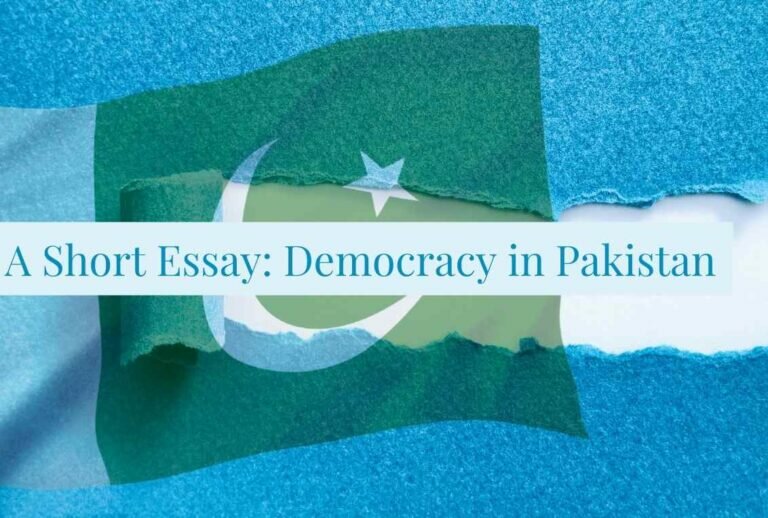Great Nations Win Without Fighting Essay
I. Introduction
“Win without fighting” is a concept that refers to achieving victory or success without resorting to physical violence or military action. It emphasizes the use of alternative means such as diplomacy, economic power, cultural influence, criticism, etc. to achieve goals in international relations.
Importance of understanding the concept in modern society: The world has become more interconnected. The use of military force often leads to unintended consequences and long-term instability. Therefore, it is increasingly important for nations to understand and master the art of winning without fighting. They need it in order to achieve their objectives in a peaceful and sustainable manner.
Thesis statement: Great nations win without fighting by utilizing diplomacy, economic power, and cultural influence, criticism, and limitations. The essay will explore the ways in which nations can achieve victory or success through the use of diplomacy, economic power, and cultural influence. It will demonstrate how these non-violent means can be just as effective, if not more so, than military action.
Also Read: Digital Democracy: Social Media and Political Participation Essay
II. Diplomacy
Diplomacy involves the use of negotiations and treaties to resolve conflicts and establish agreements between nations. Through diplomatic channels, nations can engage in direct communication and work towards mutually beneficial outcomes.
Diplomatic relations refer to the official relationships between nations. It includes the exchange of ambassadors and diplomats. Strong diplomatic relations can promote cooperation and reduce the possibility of conflict. Alliances, or formal agreements between nations to cooperate and support each other. They can also be used to achieve common goals and increase a nation’s standing in the international community.
Examples: The United States and Iran reached a historic agreement in 2015 on Iran’s nuclear program through diplomatic negotiations. This agreement reduced tensions between the two nations and helped prevent a potential military conflict.
The reconciliation between France and Germany after World War II is another example of diplomacy being used to resolve conflicts and promote peace. The two countries formed the European Union. This has helped to ensure stability and cooperation in Europe for decades.

III. Economic Power
Economic power refers to a nation’s ability to control resources and markets. It also refers to the influence of the global economy. This can include control over natural resources, access to technology, and the ability to attract investment and trade.
Economic power can also be used to exert pressure on other nations through the use of sanctions. Sanctions are measures taken to restrict trade, investment, or financial transactions with a specific country or group of countries. Economic pressure can also be used to achieve political goals or to force changes in a targeted nation’s behavior.
Examples: China’s Belt and Road Initiative is an example of how a nation can use its economic power to increase its influence and gain access to new markets.
The US-led sanctions against North Korea demonstrate how economic pressure can be used to force changes in a nation’s behavior. The sanctions were imposed in response to North Korea’s nuclear weapons program. They have been successful in limiting the country’s economic growth and ability to acquire materials and technology for its weapons program.
Also Read: Political Instability Leads to Economic Downfall Essay
IV. Cultural Influence
Cultural influence refers to the ability of a nation to spread its ideas, values, and way of life to other countries. This can include the export of popular cultures, such as music, films, and art. It also includes the promotion of national values through diplomacy and education.
Cultural influence is often referred to as “soft power“. This is a term coined by Joseph Nye to describe a nation’s ability to attract and co-opt other nations through its cultural appeal. Cultural diplomacy is the use of cultural exchange programs and other initiatives to promote a nation’s image and values abroad.
Examples: American popular culture, such as Hollywood films and music, has a significant impact on the world. It influences fashion, language, and attitudes toward the United States.
Similarly, South Korean K-Pop has become a global phenomenon. It demonstrates the power of cultural influence to reach new audiences and promote a nation’s image abroad. The popularity of K-Pop has helped to increase South Korea’s soft power and cultural appeal, boosting its global profile and economic ties with other countries.
Also Read: The Impact of Artificial Intelligence on the Global Job Market
V. Criticisms and Limitations
Critics argue that soft power may not be as effective as other forms of power. It happens particularly in situations where a nation’s cultural appeal is limited or when it is used to promote values that are not widely accepted.
i) Limitations of diplomacy
Diplomacy can also be limited by political considerations and the conflicting interests of different nations. Diplomatic negotiations can be slow and cumbersome, and the outcomes may not always align with a nation’s goals and interests.
An example of the limitations of diplomacy is the North Korean nuclear weapons program. Despite multiple rounds of diplomatic negotiations, including the landmark summit between North Korean leader Kim Jong-un and US former President Donald Trump, the North Korean nuclear threat has not been eliminated.
ii) Economic power and its limitations
The use of economic power can also be limited by factors such as the global economic system and the actions of other nations. For example, economic sanctions may not be effective if other nations choose to ignore them or if the targeted nation is able to find alternative sources of trade and investment.
An example of the limitations of economic power is the US-led sanctions against Iran. Despite years of economic pressure, including sanctions on Iran’s oil and financial sector, the Iranian government has not fully cooperated with international demands to curb its nuclear program.
iii) Cultural influence and its limitations
Cultural influence can be limited by cultural differences and language barriers. It can also be used to promote values and ideologies that are not in line with the values of other nations, potentially creating tensions and conflict.
An example of the limitations of cultural influence is the perception of Western values and popular culture in the Middle East. Despite the global reach of Western popular culture, it has been met with resistance and criticism in some countries in the region.
Also Read: Why Democracy is Not Always the Best Form of Government?
VI. Conclusion
In this essay, we have explored the concept of “winning without fighting”. We saw how great nations can achieve victory or success through the use of diplomacy, economic power, and cultural influence. By utilizing these non-violent means, nations can resolve conflicts, establish agreements, and promote peace. Meanwhile, there are some criticism and limitations also which can inhibit winning without fighting.
The use of diplomacy, economic power, and cultural influence allows nations to achieve their objectives in a peaceful and sustainable manner. It demonstrates that great nations can indeed win without fighting.
The world is becoming more interconnected and interdependent. The use of military force is often not the most effective solution to international conflicts. By mastering the art of winning without fighting, nations can play a positive role in shaping the future of the world and creating a more peaceful and prosperous future for all.







